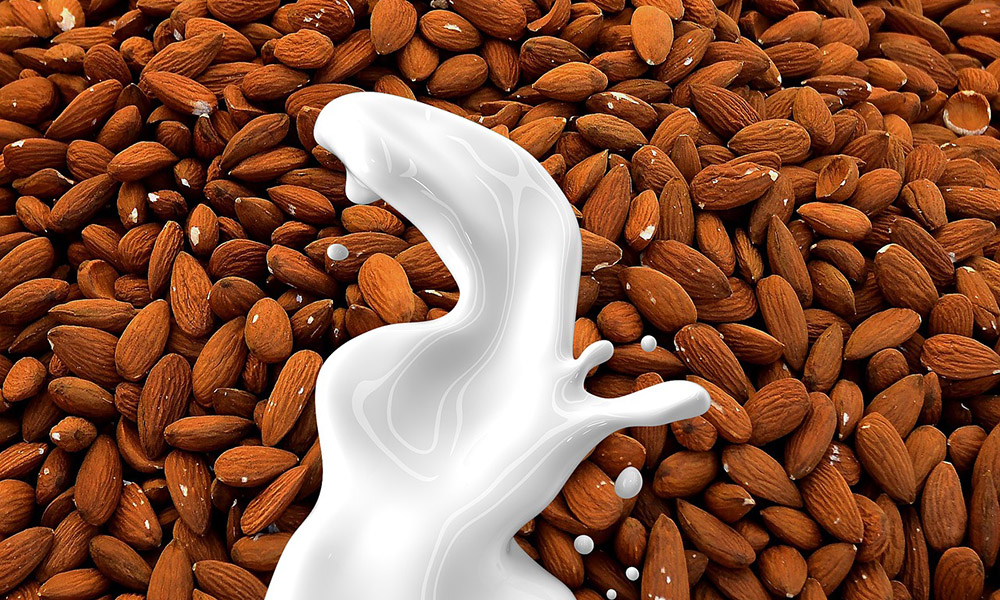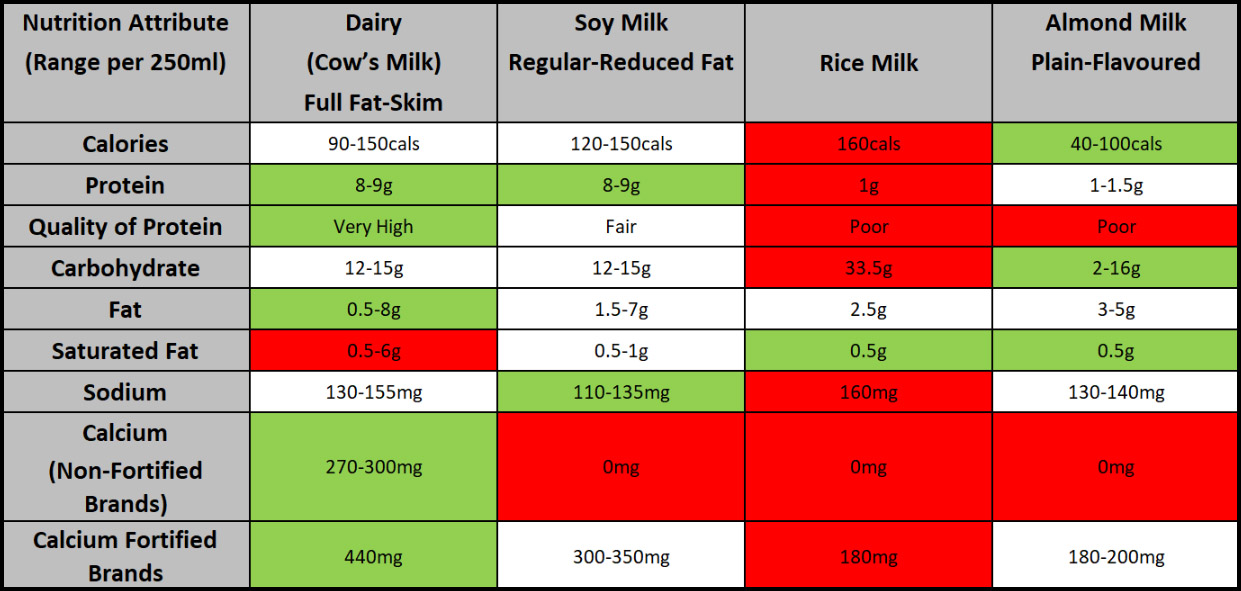
Hi Jase,
Are all kinds of milk good for your body? I thought almond milk was good for you, but then I read things that say that almond milk doesn’t give you the same nutrition that dairy based milk does for your bones. On top of this, one article went on to advise that soy milk doesn’t have the same compromise! Is this true? I really don’t care for almond milk but I love soy milk. What are the pro’s and con’s on these dairy milk substitutes?
– SubstituteDrinker

Round three for milks!
Thank you for your question, this area of nutrition is so controversial with so many mixed messages it can be extremely hard to know if you are making the right choice for you. So let us put four different milks head to head to see which may be the best fit for your needs!

(Note attribute rounded to the nearest 0.5 and are averages between numerous brands and are shown as a guide only)
So what I have done here is to classify the best option for the nutrition attribute in green, with the poorest option in the red. To summarise:
- Plain almond milk has the lowest calories, with rice milk the highest calories. Calories are the main focus of losing and gaining weight so if this is a concern for you, then you should look at this area.
- Both cow’s milk and soy milk have the highest total protein content.
- Cow’s milk by far has the best quality of protein
- Plain unsweetened almond milk has the lowest carbohydrate content with rice milk the highest by far.
- Skim cow’s milk has the lowest total fat content, however when looking at the percentage of this that is made up from saturated fats (a high consumption of which can lead to an increased risk of heart disease development) then this also has the highest percentage of saturated fat. No surprise however as this is the only milk derived from an animal source.
- Soy milks have the ,lowest sodium content with rice milk containing the highest. Excessive sodium content in the diet can be linked to high blood pressure (hypertension).
- Cow-derived milks always win out on calcium content compared to other milks even if they have been fortified with calcium.
Saying the above, there really are a wide range of other considerations when you are choosing the best milk for you. For example, if you are intolerant to the natural sugar in cow’s milk lactose, then you could choose a cow’s milk that is “lactose free” which has a specialised lactase enzyme included to assist with the digestion of that particular milk sugar.
Other people (especially men) may be concerned about the oestrogenic effects of soy-derived products (soy milk) and the potential for them to lower testosterone levels (there have also been some other health concerns linked with high soy consumption but as yet conclusive evidence is scarce!)
Given the extremely high quality protein source that cow’s milk provides, alongside the hefty calcium hit and the overall equal total protein content, if you do not have any digestive concerns with cow’s milk, I always will recommend it (use reduced fat or skim to lower saturated fat content). Any concerns regarding the acidity of dairy foods, this article can put your mind very much at ease!
When in doubt about a nutrition question, be sure to consult with the peak professionals for nutrition services, an Accredited Practising Dietitian or an Accredited Sports Dietitian, both of which we have on our team at Enliven Nutrition!
— Jase
Got a nutrition or training question? Or just want to know how to become better than yesterday?










